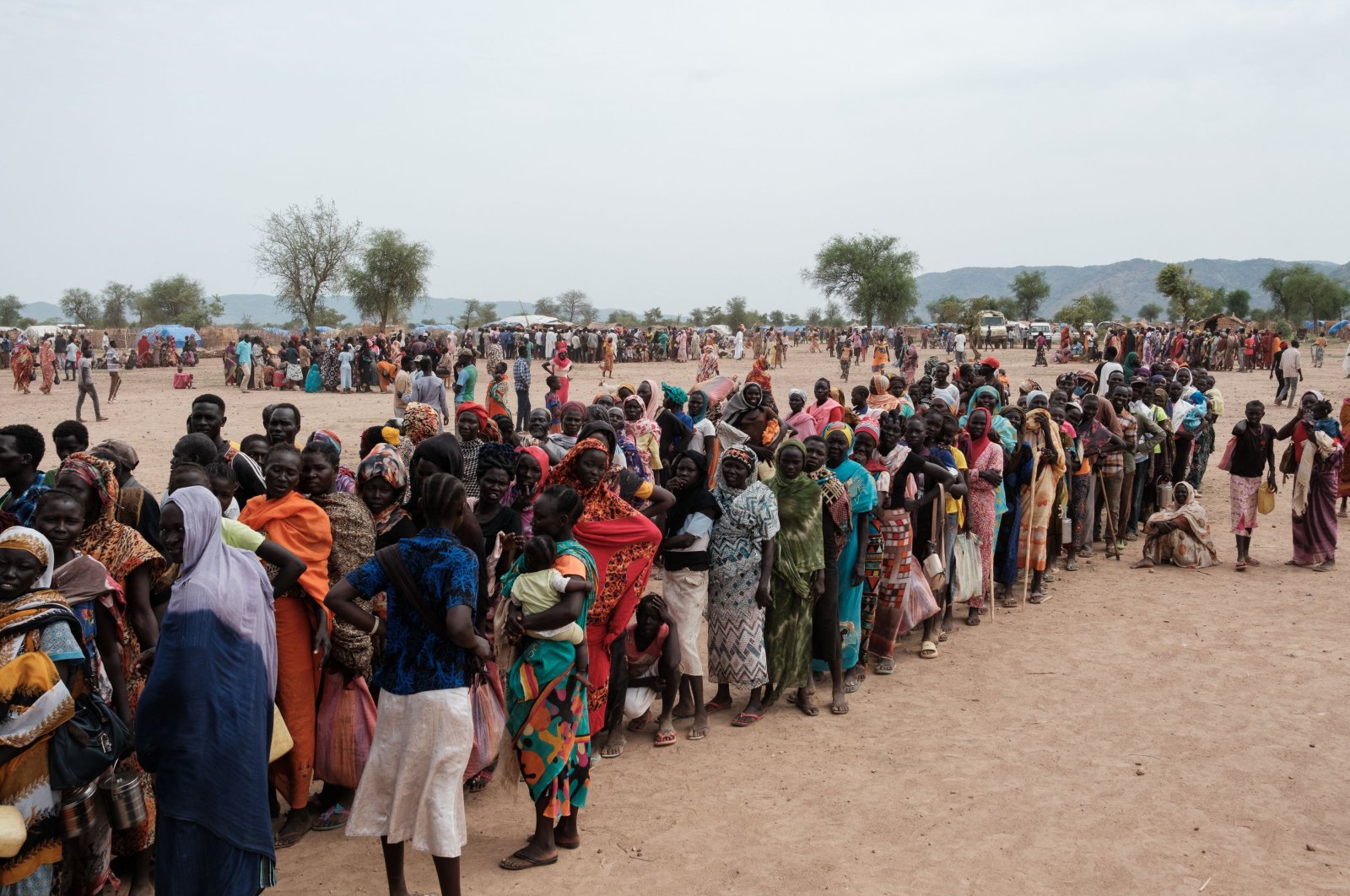
Independent U.N. experts criticized Sudan's warring parties for using starvation as a weapon of war, as a non-governmental organization warned that up to three million people could die from famine in the wartorn African country.
Sudan plunged into chaos in April last year when simmering tensions between the country's military and a notorious paramilitary group, the Rapid Support Forces, exploded into open fighting in the capital, Khartoum and elsewhere in the country.
Fourteen months of fighting have killed more than 14,000 people and wounded 33,000 others, according to the United Nations, but rights activists say the toll could be much higher.
There were widespread reports of rampant sexual violence and other atrocities that rights groups say amount to war crimes and crimes against humanity. The conflict created the world's largest displacement crisis with over 11 million people forced to flee their homes.
"Both the SAF and the RSF are using food as a weapon and starving civilians," the experts said, using initials for the Sudanese Armed Forces and the Rapid Support Forces. "The extent of hunger and displacement we see in Sudan today is unprecedented and never witnessed before," they said.
Neither the military nor the RSF returned phone calls seeking comment.
The experts warned that famine has become imminent in the country as humanitarian aid has been blocked and harvest season was disrupted because of the war. They added that more than 25 million civilians in Sudan and those who fled the country are being starved and need urgent humanitarian assistance.
A report by Clingendael Institute said last month that around 2.5 million people in Sudan could die from hunger by the end of September, with about 15% of the population in the regions of Darfur and Kordofan being likely the worst affected.
The independent experts said local efforts in response to Sudan's hunger crisis have been hampered by unprecedented violence and targeted attacks on civil society and local responders. Dozens of activists and local volunteers have been arrested, threatened and prosecuted in recent weeks, they said.
"The deliberate targeting of humanitarian workers and local volunteers has undermined aid operations, putting millions of people at further risk of starvation," they said. "Local responders are risking their health and lives and working across battle lines."
They urged both sides to "stop blocking, looting and exploiting humanitarian assistance."
The experts are part of the Special Procedures, which is the largest body of independent experts in the United Nations Human Rights system.
The fighting has in recent months centered around el-Fasher, the capital city of North Darfur province, trapping hundreds of thousands of civilians. At least 143,000 people have been forced to flee el-Fasher over the past three months, according to the U.N.
The U.N.'s Security Council earlier this month demanded the RSF to immediately end its siege of the city, which is the military's last stronghold in the sprawling Darfur region.
3 million at risk of famine
Up to three million people in Sudan could die from hunger amid a protracted conflict between the military and the Rapid Support Forces (RSF) paramilitary group, the International Rescue Committee warned Wednesday.
"Almost half of the country is in a form of humanitarian need,” Country Director Eatizaz Yousif told Washington-based National Public Radio.
"Three million are on the brink of famine,” she warned. "That is the initial numbers. And the number of people underreported that is being really silently dying is unbelievable because there's a failure in the health system.”
"I guess we don't have a lot of influence. I guess our geographical location is not having a huge importance like Palestine or Syria or even Ukraine. Sudan crisis has been even before us, and we never get that media attention,” she said.
Yousif said she doesn’t want to compare crisis to crisis, "but I guess Sudan - it's really required to be at the heart of diplomacy effort and to get the attention it required.”
The conflict in Sudan broke out in April 2023 between army Gen. Abdel Fattah al-Burhan and RSF commander Mohamed Hamdan Dagalo over disagreements about integrating the paramilitary group into the military.
The conflict has killed nearly 16,000 people, displaced millions and caused a devastating humanitarian crisis in Sudan, according to UN figures.
